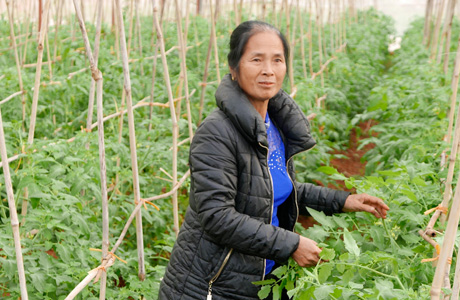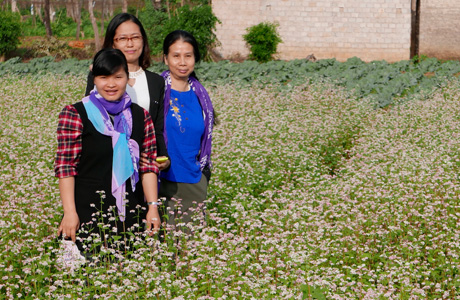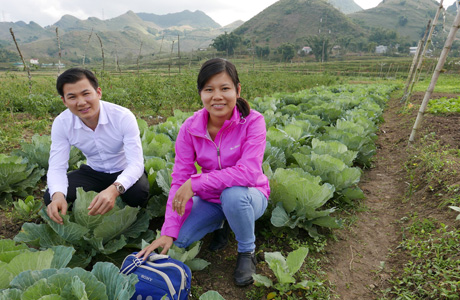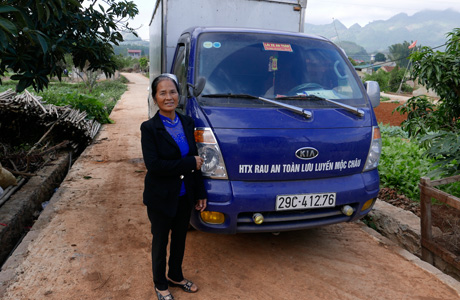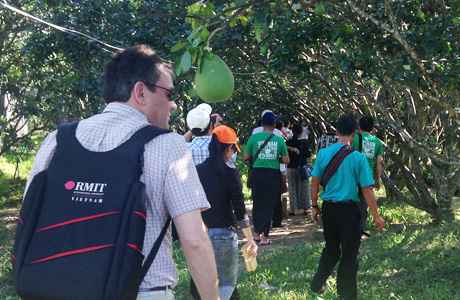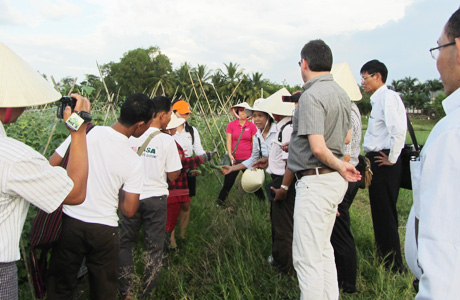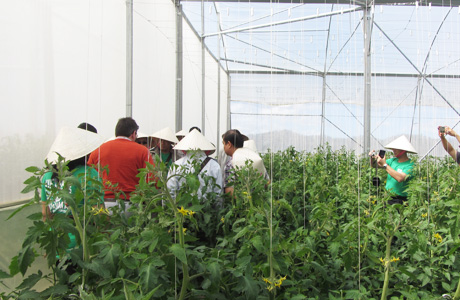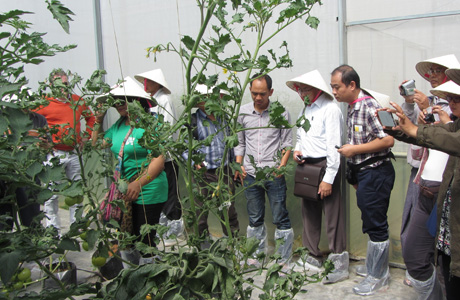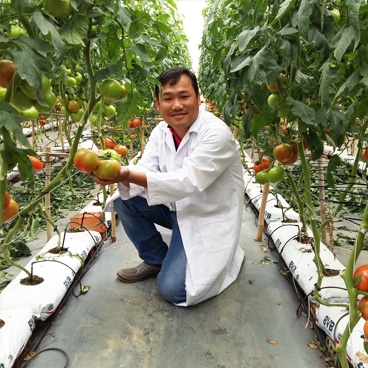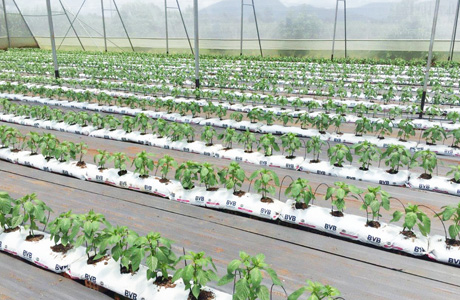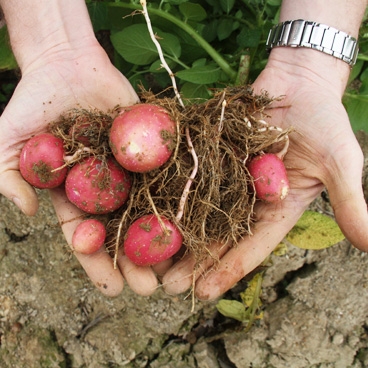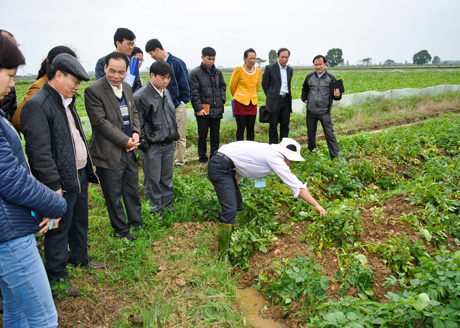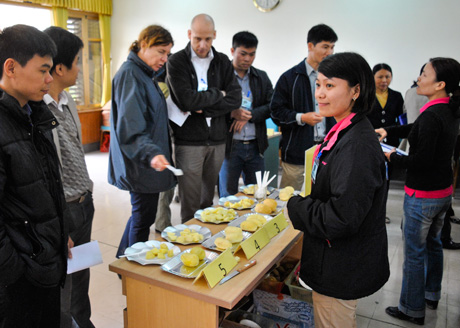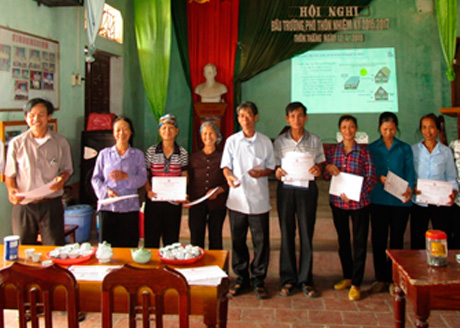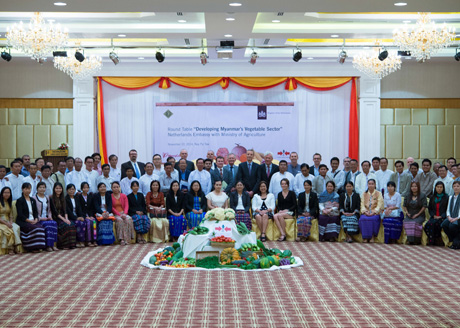95% of Vietnam’s potatoes are grown in the Red River Delta, during the cool weather season when rice cannot be grown. Potato production is an excellent alternative to improve the local food security and increase the income of smallholder farmers. In the Central Highlands potatoes can be produced year-round. Therefore the Growing Out of Poverty with Potato project, managed by Fresh Studio, is located in exactly these areas.
In this FDOV-funded partnership Fresh Studio, PepsiCo, Agrico and Wageningen UR cooperate to establish more sustainable potato production systems in Vietnam. At the same time, the project aims to increase the consumer awareness about the nutritional value of potatoes. PPP Lab’s Marleen Brouwer interviewed Sigrid Wertheim-Heck (director Marketing and Business Development of Fresh Studio) about this inspiring partnership.
What are you currently working on in the project?
At this moment we are working on both the supply side as well as the demand side of potato sector development. On the supply side, the farmers are being introduced to new quality seed potatoes, combined with trainings on crop management and overall capacity development. We are also working on our hardware investment plan to introduce, among others, potato planting and harvesting machinery in the near future. Since most of the farmers in our project are women, we hope that the potato production work will become less labour-intensive and less time-consuming. Women have to combine household tasks with farming, and through machinery we aim to relieve some of the most arduous, physically strenuous farming tasks.
On the demand side, we are working on the adoption of new high quality Dutch potato varieties in the Vietnamese diet. The new high quality varieties aim to provide consumers with a better quality alternative to the current rather limited offer. However, varieties that might be a bit bigger, smoother or have a different colour are not automatically accepted. When we work with farmers we need to assist also the adoption of the distinct produce in the market. Since the demand for potatoes is higher than the supply, outcompeting other providers is not the case.
Lately we have done a baseline study, among 400 consumers in the north of Vietnam and 400 in the South, to learn more about today’s potato consumption and people’s knowledge about the nutritional value of potatoes. We repeated the study during the potato season to correct for potential seasonality bias. We see that consumers in the South have different preferences than in the North. In general potato is valued as a healthy product both in the South and in the North. Still there is an inherited association with potato as a “poor man’s food”. Our project tries to alter this perception by implementing awareness campaigns, both in urban and rural areas. We are even establishing taste labs, which is yet a quite unknown phenomenon in the agricultural sector of Vietnam.
What do you see as the biggest challenge within your project at this stage?
We have to work hard to make this PPP work and to implement all our planned activities, but actually we do not encounter any big issues. In my opinion, the project is doing really well. Important to add: we did not start from scratch when we received the subsidy. This is a major advantage. We are building upon potato research, which we previously conducted. Besides we already know the farmers, because our agronomy team works in the rural areas. Moreover, our relations with local governments and cooperatives are very good.
We have formally kicked off our activities in October 2014, and since then the implementation is progressing as expected. The farmers are enthusiastic about the project, and very willing to participate in the training and variety testing (which includes demonstration farms). Our aim is to include 70% female farmers, which seems feasible given the importance of women in potato production. This first season we have trained 500 farmers, the majority being women, of the totally targeted 2500 farmers.
In your opinion, what are the biggest pitfalls for PPPs in the FDOV subsidy framework?
Starting new projects in new project frameworks is always challenging. The start-up took a while, but it also aided a robust set-up and clear direction, which benefits the project in its operations and secures that ambitions can be met. Changes in personnel of RVO resulted in delays of communication and thus project progress, but currently this is running well. Another challenge is the physical distance between RVO in the Netherlands and the partnership in Vietnam. When developing projects over larger distances, it is sometimes hard to understand the specific local conditions. Lastly, the project has a duration of five years. Defining fixed outcomes, for example in terms of farmer income, might prove to have limited value over five years’ time. Many aspects may influence the outcomes, of which several might be external circumstances beyond control. We deem it important to keep a certain level of flexibility within projects to mitigate unforeseen circumstances, or be able to embrace unexpected beneficial conditions.
Are there subjects that you would like to discuss with other parties involved in PPPs?
All PPPs are run in another way, but I am curious to learn how other practitioners design and implement their projects. Cross-learning is crucial to make all PPPs better, and to improve the FDOV and FDW facilities for the sake of sustainable development. I would like to discuss with others how they do their research, how they train their farmers, but also how they manage their PPPs and how they do monitoring & evaluation. What works, what does not work, what can we do differently?
Is there anything that you would like to share with other PPP practitioners?
At Fresh Studio we have discovered that managing a FDOV PPP is a fulltime job. This is not just a project for on the side. It takes a lot of time and effort to do it right. Furthermore, PPPs have a proven value, but they are never a guarantee for success. It is always a means to get somewhere, and not a goal in itself. In our partnership we are committed to be innovative, and part of the innovation lies in interdisciplinary cooperation. It is important to keep on listening to each other, to truly learn from each other’s views and beliefs. We all come from different backgrounds; farmers, businessmen and researchers all have their own objectives. Therefore it is crucial to continuously manage expectations to make a PPP successful.
More information about the potato project can be found here.
Read the project profile including snapshot information about the partnership
____________________________________________________
Source: PPP Lab
Publication date: 2015





